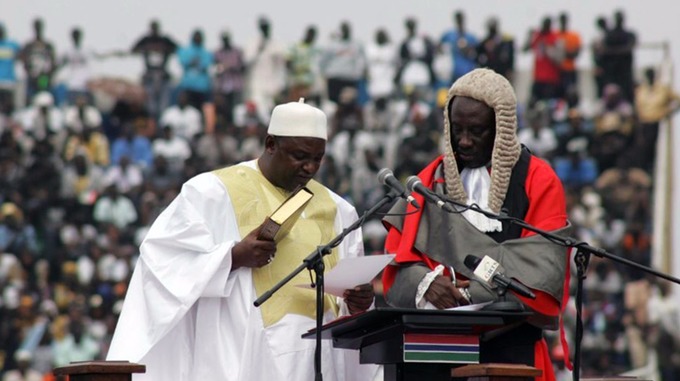By Musa Camara
In his State of the Nation Address to members of the National Assembly in September 2018, President Adama Barrow said his government planned to establish three more commissions before the end of that year. They are the first-ever National Human Rights Commission, the Anti-Corruption Commission, and an Independent Police Complaints Commission. And if the sheer number of proposed commissions for the impending Third Republican Constitution in the ‘Issue Document’ released by the Constitutional Review Commission (CRC) materialized, Gambians should resign to the fate that commissions will be instruments of governance in The New Gambia and beyond.
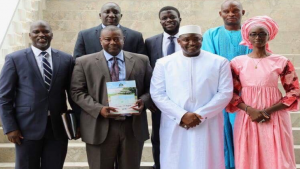
President Barrow wasted no time after his State of the Nation Address when on Monday, 17 September 2018, he sworn into office a five-member Land Commission at the State House. The commission is a policy advisory body on land administration for the Minister of Land and Regional Government to investigate land disputes, and monitor prices. As promised and on schedule, the National Assembly, on 27 December 2018, confirmed five nominees of President Barrow into the National Human Rights Commission. The 1997 constitution of The Gambia guaranteed the Bill of Rights in twenty-two sections in Chapter IV under the title Protection of Fundamental Rights and Freedoms. As such, one would have expected the government to simply respect and adhere to the limits sets on its powers under the rule of law with a robust judicial system where legal matters would be settled case law. Instead, a bureaucratic operation with additional costs to poor taxpayers is created to enhance the promotion and protection of human rights. In a nutshell, another bureaucracy is created to tell the government to respect human rights of citizens when it could simply respect the rights as enshrined in the constitution.
The approach is both deeply rooted in mindset, culture and history of the Gambian people. Many Gambian government officials and elites relish elaborate bureaucratic organizations chiefly among them the United Nations Organization (UNO). Many Gambian elites fancy to work for the UNO or some international organizations or in international appointments. Gambians are overrepresented in the UNO and its agencies in comparisons to other nationalities around the globe. Bureaucratic formality is akin to power and authority in the civil service. Citizens who want to follow the formal process by refusing to pay bribes or lacking the connections in government would generally found themselves denied government services. And for those who are determined to obtain such services honestly, they generally would be referred to different government offices in faraway locations and cities to frustrate their efforts in resolving their transactions. It would take numerous visits and months to have a file, say, on the third or second floor of a government building to be transferred down to the first floor for processing to facilitate obtaining a government-issued document for end users. The parasitic bureaucratic nature of government operations create backlogs of work which would take months or even years to clear.
After crises involving the government erupt, Gambians trust commissions of inquires as the unbiased arbiters to get to the root causes of their problems. The country has a history of commissions of inquiries dating back to the 1980s when the then Attorney General and Minister of Justice, Fafa Mbaye, instituted a commission of inquiry to investigate his cabinet colleagues for corruption and other financial malfeasances. That expediency did not end well for Mr. Mbaye as he was removed from the cabinet by former President Jawara who had cut short his vacation in the United Kingdom to calm the fears of his ministers.
Commissions of inquiry became fashionable after the 1994 military coup d’état when numerous commissions were formed by the Armed Forces Provisional Ruling Council (AFPRC) to investigate the “rampant corruption” of the government of the People’s Progressive Party (PPP). The commissions were popular sensations, especially the Algali Commission, whose daily proceedings were highlighted on the national news to provide compelling justifications for the military takeover.
While in office after the transition from military to civilian rule in the Second Republic, Yahya Jammeh continued to intermittently use commissions of inquiry as problem-solving instruments. Like the commission created by Mr. Mbaye, President Jammeh also used his to witch-hunt the elites he perceived enemies of his government and person. The citizens also turned the table on him when his government was distrusted and lacked credibility during national crises.
Bugging under pressure in the aftermath of the bloodbath that led to the dead of student protesters in April 2000, President Jammeh formed a nine-member Commission of Inquiry into the Public Disturbances of April 10thand 11th, 2000. While the commission completed and submitted its findings in August of that year, the report was not released to the public until when it was leaked, in 2018, more than a year after Mr. Jammeh was removed from office. In October 2011, Mr. Jammeh also formed the Commission of Inquiry into Tax Evasion and Other Corrupt Practices chaired by Mama Fatima Singhateh who once was and would again become Minister of Justice in his government. The commission specifically targeted members of the business community including lawyers, medical professionals and institutions. The obvious targets of the commission were some prominent members of The Gambia Bar Association which included Pap Cheyassin Ousman Secka, Sheriff Tambadou, Antouman A.B. Gaye, Surahata B. Semega Janneh, and Ousainou A.N.M Darboe among others. Incidentally, Ousainou Darboe — the current Vice President— is the leader of the United Democratic Party (UDP); and Sheriff Tambadou, is the brother of the current Minister of Justice, Abubacarr Tambadou. That commission reported that fifty selected taxpayers evade about D2.5 billion in tax payments from 1999 to 2011 including ten lawyers who evaded about D20.7 million over the same time period. Ironically, some hirelings of the former president alleged at the Janneh Commission that the special bank accounts that were set up to recover the funds for the government were placed at his disposal to serve as piggybanks for his personal use.
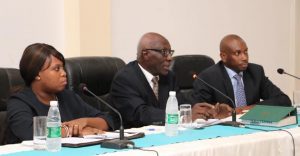
When the government of President Barrow took over the reign of power, and after the National Assembly was elected, one of the first acts of the current government was to create the Commission of Inquiry on The Gambia’s Former President’s Financial Dealings and Connected Matters. Like the Algali Commission, this one was also dubbed the ‘Janneh Commission’ named after the commission’s chairperson Surahata B. Janneh. The Janneh Commission, the popularity which rivals that of only the Algali Commission, ran people out of patience because it was designed to just make recommendations to the president without any real powers to make judgments and rulings to punish penetrators. Furthermore, people lost interest in that commission because it ran more than one year thanks to the law that gives its members the mandate to extend its lifespan, which has been done thrice already.
Gambians would have more commissions from their new government when in December 2017, two bills were passed by the National Assembly for the creation of the Constitutional Review Commission (CRC), and the Truth, Reconciliation and Reparations Commission (TRRC). The first commission was created to draft a new constitution to be presented to the people for approval in a plebiscite. The second, the Truth, Reconciliation and Reparations Commission (TRRC), that is expected to rival both the Janneh Commission and the Algali Commission in terms of theatrics and public curiosity, is first of its kind in The Gambia. It’s expected to be a copycat of the pioneering Truth and Reconciliation Commission (TRC) that was empaneled in South Africa after the end of Apartheid. It would allow both victims and perpetrators of crimes of human rights to record for history the ordeals they endured from, or they inflicted on their fellow citizens. The TRRC began its hearing on Monday with a testimony by the former Deputy Inspector General of Police, Ebrima Chongan.
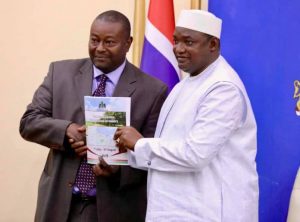
After the shooting at Faraba Banta by the Police Intervention Unit (PIU) that led to the death of three natives of the village, Gambians and their legislators in the National Assembly, as expected, called for the creation of the Faraba Banta Commission of Inquiry. The commission comprising five members extended its lifespan by one hundred percent of the original time allotted to complete its work. According to the Attorney General, the “establishment order said the commissioners are to complete their work in one month of its first sitting, but also gave power to the commission to continue for a further one month if in its opinion it is necessary to do so.” That commission submitted its report to the president in October.
The Government released the report of the commission with an accompanying White Paper on 28 November 2018. The report calls for the prosecution of five PIU officers for the dead of three protesters; prosecution of criminal elements among the protesters; the firing of Nuha Kujabi as the Alkalo of the village; dissolution of the Village Council of Elders; recommend the dissolution of the Village Development Committee and appointment of new members by the Brikama Area Council; six months suspension without pay of the Executive Director of National Environmental Agency (NEA), and the Director General of the Geology Department; the nonrenewal of the license of Julakay Limited; and the creation of the Faraba Banta Compensation Committee to facilitate claims and payments of compensation to victims. The Government, according to Mr. Tambadou, accepted the recommendations for implementation.
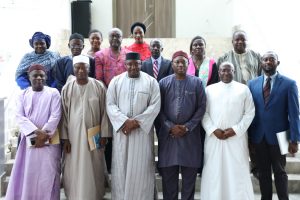
In June, the Social Security and Housing Finance Corporation (SSHFC) was engulfed in crisis between the management and leadership on one hand against staff on the other. Some members of the staff went on a strike but also barricaded the facility illegally barring other employees, retirees and members of the public from accessing the facility. While the Office of the Ombudsman started an investigation on 11 July 2018 in response to the complaint sent to the Secretary General and copied to the Ombuds’ Office by the employees at the SSHFC, the President duplicated its work on 29August by forming what the State House Called an Independent Fact-finding Investigative Panel to investigate and submit a comprehensive report on the dispute. Prudence would dictate that the President wait until the Office of the Ombudsman submits its report and where the report was unsatisfactory, or recommendations proved inadequate to resolve the crisis, then another solution would be proper. The six-member panel included Lamin Samateh—the Chairperson of the Public Service Commission (PSC), Crispin Grey-Johnson who was the former Minister of Higher Education, Alieu Ngum, Nelly Taylor, Alhaji Tamu Njie and Nyallo Barrow.
The Office of the Ombudsman submitted its report to the Secretary General on 29 October 2018. Even though the report by the Ombudsman found faults with both Mr. Muhammed Manjang, the Managing Director and Momodou Camara who was appointed by the staff as their representative, President Barrow reinstated the former who was suspended during the investigation whereas he fired the latter. It looked like the president relied on the recommendations of his panel and disregarded those of the Ombudsman.
More commissions reports are in the works to be submitted to the president. The next report to likely come out will be the Janneh Commission for the president to a make determination and take actions about former President Jammeh and his accomplices in financial embezzlement and outright theft from the national treasury.
Governance
The commissions, despite providing remedies or some sorts of solutions for stakeholders in The Gambian context, they do not only blur the functional lines between departments in the executive branch of government, but also throw asunder the principle of separation of powers in a democracy. In determining the remunerations for the commissioners of the Faraba Banta Commission, which was created by the president under the Commissions of Inquiry Act, it was Mr. Tambadou, the Attorney General and Minister of Justice, who presented the bill before members of the National Assembly. Ideally, the State House, as the cost center, through the Vice President or even the President, should have tabled the bill to the National Assembly and answered questions from legislators. The budgets for many of the commissions created under the Barrow Administration are reportedly charged to the Ministry of Finance and Economic Planning as the cost center, which as programmatic areas or operations have nothing to do with those commissions.
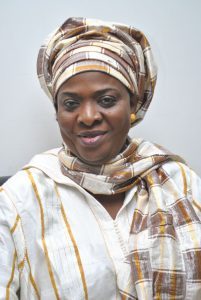
It is in shirking responsibilities to one another that led to the confrontation between the Speaker of the National Assembly, Mariam Denton-Jack and former Minister of Finance and Economic Affairs, Amadou Sanneh on one hand, against Halifa Sallah the National Assembly Member for Sere Kunda constituency on the other. In that debacle in March, the current Vice President, Ousainou Darboe, who was the Minister of Foreign Affairs and Gambians Abroad at the time, was scheduled to present before members of the National Assembly a concessional loan agreement he had negotiated with Imports and Exports Bank of China. He delegated to Mr. Sanneh the responsibility to table the motion before the National Assembly on the claim that he, Mr. Darboe, was not good with matters of finance even though he negotiated the deal. Conflict ensued after Mr. Sanneh did not present the full bill to members of the legislature but attempted an unorthodox parliamentary maneuver to get legislative approval.
The principle of separation of powers is upended in the current administration particularly in the formation of the commissions which have been created since President Barrow took office. Traditionally, and in genuine democracies, it’s the responsibility of the executive to appoint, subject to confirmation by members of the legislature, key positions for executive agencies, commissions and bodies. Generally, the judiciary and its members do not play roles in the execution and decision-making in the routine operations of the government except where they are appointed, on ad hoc basis, as members to conduct investigations to submit reports. Under this government, members of the judiciary — especially the Chief Justice — partake in appointing members of the commissions which is best suited for the executive and legislature. Unelected judges, who are not held accountable by the voters, should interpret the laws and serve only as referees in the administration of justice.
The incompetent National Assembly is more culpable for the subpar democratic practice in that it passes into law such bills proposed by the executive branch. The Chief Justice was empowered by the Constitutional Review Commission, and the Lands Commission Acts to “designate” certain members of the judiciary into those commissions. None of the commissions appointees ever faced confirmation hearing by the legislature as it simply passed the law and left to the executive a free hand and abdicated the rest of its responsibilities to the judiciary. In The New Gambia, judges are now dabbling into more operational roles in the day-to-day running of the government.
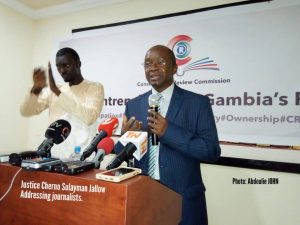
Mr. Tambadou, the man behind all reforms in the Barrow Administration, appears to take advantage of the clueless members of the National Assembly by engaging them only to undercut the oversight powers the institution should exercise over the executive branch. In presenting the CRC bill to the members of the National Assembly, he proposed a bill which stated that “the National Assembly shall, acting in accordance with section 226 of the 1997 Constitution, debate and approve the Constitution [without amendment].” Some members of the National Assembly caught the dangers of the executive-branch appointed commission that writes a new constitution — to be presented as a bill — which legislators must rubber-stamp without amendments. That section was amended by the legislature before the bill’s final passage. He missed the principal function of the legislature in a democracy where separation of powers and the principle of checks and balances exist between co-equal branches of government.
Judging from some of the decisions he had taken in office thus far, the Attorney General may also have problems with Due Process and ethical governance. In July, the High Court dismissed his application to unfreeze for public use some landed properties in the Tourism Development Areas (TDA) belonging to former President Jammeh. Mr. Tambadou wanted to unfreeze the assets to facilitate private investors to build hotels in preparations for The Organization of Islamic Cooperation (OIC) slated to be hosted by the country this year. In July 2017, Mr. Tambadou had requested the courts to freeze “131 landed properties, 88 different bank accounts, 14 companies, and a number of animals and livestock” “held in the personal name of,” or “directly associated with,” or “belonging to former President Yahya Jammeh.”
“The freezing order is therefore meant to prevent former President Yahya Jammeh from liquidating or dissipating assets held in his personal name or his assets held in the names of his close associates or agents so as not to cause prejudice to the State should there be adverse findings made against him by a court of competent jurisdiction which may require the recovery of assets and monies from him by the State,” Mr. Tambadou stated in May 2017.
Mr. Tambadou applied to the High Court to allow the government to dispose of some of the properties of former president Jammeh, which Mr. Tambadou had, in May 2018, asked the court to freeze for six months pending findings of the Janneh Commission. The judge ruled that permitting the government to dispose of Mr. Jammeh’s properties, which the government has not proven he acquired unlawfully, would deny the former president the right to own his properties. The High Court judge concluded that what Mr. Tambadou was calling for was synonymous with “shooting oneself on one’s foot.”
In September, Mr. Tambadou appealed the case, again, to the High Court to unfreeze some assets and four properties belonging to or bearing the name of the former president. The court granted his appeal on those assets as having merits. Notable among the assets, as reported by Foroyaa Newspaper, are “the Bank accounts of the Jammeh Foundation for Peace Hospital, because the hospital is owned and operated by Government and the signatories appointed by the Ministry of Health and Social Welfare, through the Hospital’s Board.” The appeal to unfreeze assets belonging the government, which never legally belonged to former president but bear his name only, showed the lack of due diligence that Mr. Tambadou and the courts have exercised in the freezing of the assets and properties in May 2017. Incompetence is there trademark.
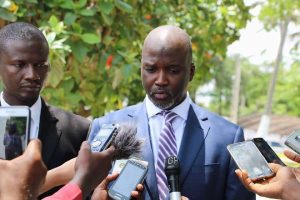
Despite ruling by the High Court, the Chairperson on the TRRC, Dr. Baba Galleh Jallow, told The Gambia Times that the government has made Dunes Resorts Hotel, a property of former president Jammeh, available to hold the hearings of the commission. The Dunes Resorts Hotel is among the assets of Mr. Jammeh frozen by the courts. The ceremony launching the commission was held at the hotel on 15 October 2018. The hotel was under renovations to facilitate the TRRC to use the facilities for the hearing. The Times couldn’t ascertain whether the cost for renovations of the hotel was paid for by the government or loans guaranteed by it since the property, as it stands, belongs to Mr. Jammeh. The Times has not obtained from the records any appeal to the courts by the government to unfreeze money belonging to Mr. Jammeh for the renovations of the hotel. Mr. Tambadou has also not publicly stated the terms and conditions the government is allowing the TRRC to use the hotel belonging to the former president—whether it’s renting the facility from the former president, or if its management is appointed by the government or the owner, or if the hotel submitted a bid to rent its facility to the TRRC.
No Free Lunch
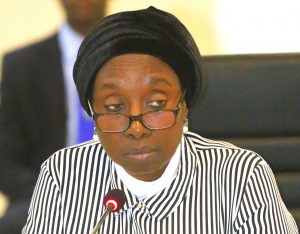
The commissions, ad hoc or permanent, come with certain operational expenses that many people have now began to openly criticize as excessive. Mr. Tambadou, whose department is a cost center with no revenue-generating capacity, appears to be a big government spender with a genius ability to skillfully roll out costly endeavors on the unsuspecting members of the National Assembly and the people. The Janneh Commission, formed in July 2017, was initially planned to last for three months with each of the commissioners paid D300,000.00 (three hundred thousand dalasis) while the private counsel, Amie Bensouda, was paid D500,000 (five hundred thousand dalasis) per month for three months. As projected then, total remunerations for the three commissioners and the private counsel for a period of three month should have amounted to D2,400,000.00 (two million and four hundred thousand dalasis).
After three months in operations, in October 2017, the mandate of the Janneh Commission was extended for an additional six months with the three commissioners remunerated at the sum of D500,000.00 (five hundred thousand dalasis) each. During this extension, Mr. Tambadou told members of the National Assembly that Ms. Bensouda had agreed to give the state “two or three months free of charge and thereafter continued her usual charges for the rest of the commission’s mandate.” Even if Ms. Bensouda were to give the state a three-month discount without pay, her compensation for the three months would have amounted to D1,500,000.00 (one million and five hundred thousand dalasis). The total remunerations for the three commissioners and the private counsel for the six-month extension would amount to at least D3,000,000.00 (three million dalasis).
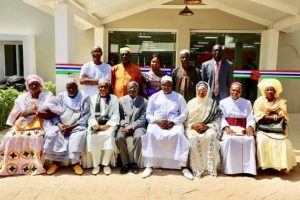
In June 2018, Mr. Tambadou requested, yet again, another three months extension on the mandate of the Janneh Commission, and requested from members of the National Assembly D300,000.00 (three hundred thousand dalasis) for remuneration for each of the commissioners. The amount totaled to D900,000.00 (nine hundred thousand dalasis) for all three commissioners for the extension. If the private counsel were to maintain her negotiated deal of a three months discount, she would have been remunerated for D1,500,000.00 (one million and five hundred thousand dalasis). The total remuneration for the three commissioners and Ms. Bensouda would, like the initial first three months of the commission’s contract, amount to D2,400,000.00 (two million and four hundred thousand dalasis).
In December 2018, Tambadou again asked the National Assembly to approved D500,000.00 (five hundred thousand dalasis) for each of the commissioners as they prepared to write their final report for submission. It would amount to D1,500,00.00 (one million and five hundred thousand dalasis).
By our calculations, total remunerations for the three Janneh Commissioners and prosecutor is projected to cost tax payers at least D9,300,000.00 (nine million and three hundred thousand dalasis) for the more than the year it’s expected to last—approximately a D6,900,000.00 (six million and nine hundred thousand dalasis) or 288 percent more than originally projected. This excludes any operational, logistical and ancillary support expenses to facilitate the investigations, sittings and works of the commission. From professional project management point of view, any project that runs three times more than was initially planned to close, and costs approximately two hundred times more than projected should be considered financially a failure resulting from scope creep, poor planning and bad execution. In financially responsible and disciplined organizations, the plug will be pulled out way before budget overruns to end the project to save resources. The entire rationale for creation of the Janneh Commission is to recommend to the president whether to investigate and prosecute the corrupt former president and his corrupt officials.
Mr. Tambadou seems to have a template, which he modifies on need basis, to justify the extension of the mandates of the commissions and salary payments to commissioners. The talking points are pointedly catchphrases like “the nature and complexity of the evidence adduced,” “emergence of new evidence,” key witnesses are “yet to be heard,” “the commissioners have suspended all their professional careers to devote time to the work,” etc. These phrases he deployed to convince the lawmakers to extend the mandate of the Janneh Commission, he used again to convince the National Assembly members to approve remuneration for commissioners of the Faraba Banta Commission at a cost of D750,000.00 (seven hundred and fifty thousand dalasis) for just two months of work. The inquiry took twice longer than was originally anticipated, and doubled the pay they would have received, which is a classic example of government waste and inefficiencies.
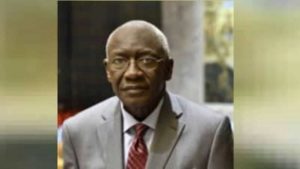
In undertaking the groundwork to institute the Truth, Reconciliation and Reparations Commission (TRRC), Mr. Tambadou, in May 2017, appointed Fatou Camara of the Fatunetwork as a designated communication person for the commission on a study tour of African countries with experiences in establishing Truth and Reconciliation commissions after civil wars and political oppressions. The trip, according to Tambadou, was sponsored by the UNDP where Ms. Camara drew emolument for her services as a media personality. Mr. Tambadou came under intense public criticism when the payment to Ms. Camara was disclosed to the public. The TRRC, which was already two months behind schedule as originally planned, was officially launched on 15 October 2018. It’s mandated to last for “two years with a possibility of an extension.” “Extension” is the signature hallmark of Mr. Tambadou for all the commissions he was instrumental in creating through legislative and executive powers.
Emoluments for the members of the CRC have not been made public or until at such time when approved by the National Assembly. The “Commission shall be for a period not exceeding eighteen months” except “where the President considers it necessary… on the recommendation of the Chairman of the Commission, extend the term of the Commission for a period not exceeding six months.” Preliminary budget projections for constitutional review, according to Justice Cherno S. Jallow, the chairperson of the CRC, will cost about $5 million of which the National Assembly has approved D4 million and the United States government has donated $250,000 (two hundred and fifty thousand dollars). In a Times interview, Justice Jallow disclosed that the CRC is renting an office space in the Futurelec Building at the cost of D200,000.00 (two hundred thousand dalasis) per annum. The untimeliness of the CRC and many other commissions created to achieve programs identified by the coalition parties to facilitate a transitional government to hold early elections within three years of the Barrow Administration as agreed by the Coalition 2016 members ran the clock out on them.
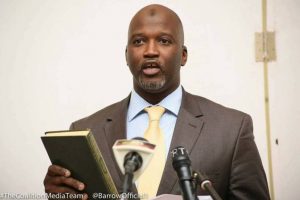
Mr. Tambadou — as the consummate bureaucrat, technocrat and the youngest at forty-four years of age in the cabinet of President Barrow — many young and middle-age Gambians saw as a promising pick who, unlike the older politicians in the Barrow’s cabinet without visions and ideas, could help undertake a financially responsible and transformational changes to enter the country into democratic governance. Since he assumed office, his spending habits exhibit he may care less about the impacts of the programs he initiated on the coffers of the nation. When the police arrested nine members of the security forces for their alleged involvement in the extrajudicial murder of Solo Sandeng in 2015, he outsourced the prosecution to a private lawyer Antouman Gaye reportedly at the cost of D6,000,000.00 (six million dalasis). Normally in established democracies, the best practice is that the Solicitor General as the chief government counsel would represent the state in major cases. Mr. Tambadou recommended the hiring of Cherno Marenah as Solicitor General who doesn’t go to court to represent the government or prosecute cases even in landmark cases including the accused NIA 9.
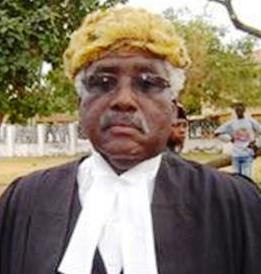
Instead of using the money to build capacity of the prosecution team at the Department of Justice, they engaged themselves in administration and management which provides them with opportunities for lucrative foreign travels while outsourcing their primary responsibilities to private law firms. In August, when the Minister of Finance provided a “summary of travel expenditure by various government…entities over the period January-July 2018,” the travel expenses for the Ministry of Justice and the Attorney General’s Chamber amounts to D3,591,330.90 (three million, five hundred ninety-one thousand and three hundred thirty dalasis and ninety bututs).
The Revolving Door
In every political change, there are winners and losers within that society and the political change in The Gambia is no exception. The legal fraternity, without doubt, emerged as winners while some key supporters of President Barrow in the coalition and the UDP felt they were left out in the cold with only a pyrrhic victory. There is a nexus of closed circle of people who walk through the revolving doors to cash money from appointments into these commissions and awards of government contracts. Some of these legal elites, also served the government of Jammeh or are closed associates of the winners in the new government.
Antouman Gaye, who was contracted to prosecute the NIA 9, is a close associate and legal counsel for the Vice President Ousainou Darboe. Mr. Gaye was the lead defense counsel in the criminal trial of the Mr. Darboe in 2016. Mr. Gaye, after receiving the contract to prosecute the NIA 9, hired Sheriff Tambadou, the brother of the Attorney General, as a counsel on his team until when he (Sheriff Tambadou) resigned following a scandal over a compromising meeting with the wife of Yankuba Badjie, one of the defendants of the NIA 9 and former Director General of the “defunct” National Intelligence Agency (NIA).
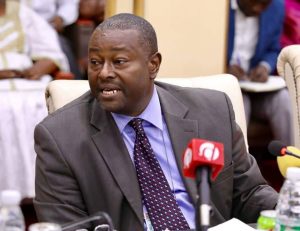
Emmanuel Joseph Joof, the chairperson of the now defunct Faraba Banta Commission, was appointed into “Commission of Inquiry into the Public Disturbances of April 10thand 11th, 2000” by former president Yahya Jammeh. Last month, on 27 December 2018, he was confirmed by the National Assembly as the chairperson of the of the Human Rights Commission. Neneh Cham, a member of the Faraba Banta Commission, was a partner of the Vice President at the Basangsang Law Firm. The private counsel at the Janneh Commission, Ms. Bensouda, and the current speaker of the National Assembly, Mariam Denton-Jack are close associates of the Vice President and have represented him as defense attorneys in numerous cases during the administration of Jammeh. Gaye Sowe, an Adjunct lecturer of Constitutional and Criminal Law at the University of The Gambia, and the Executive Director of the Institute for Human Rights and Development, who was rumored to have authored a document the Jammeh government issued in defense against international condemnation for human right violations, was appointed into the CRC. Mr. Sowe is a close associate and confidant of the Attorney General. Furthermore, L.S. Camara, a former state counsel and a close friend of the Attorney General and Mr. Sowe was also appointed as a member of the CRC. Moreover, Ms. Hawa Sisay-Sabally—the former Attorney General and Minister of Justice under Yahya Jammeh and the author of numerous witch-hunt laws under the regime of Jammeh—was also appointed as the Vice Chairperson of the CRC.
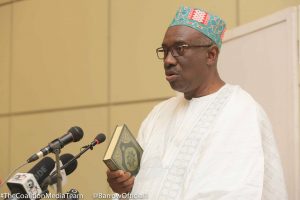
The Attorney General, Mr. Tambadou, is said to be the prodigy of the Chief Justice, Hassan B. Jallow who upon securing a job as a prosecutor for the United Nations International Criminal Tribunal for Rwanda (ICTR) in Tanzania helped his mentee—AG Tambadou—to secure a job in 2003 as an Associate Legal Officer. Mr. Tambadou reportedly was instrumental in assisting Fatoumata Bom Bensouda to the ICTR as the Legal Adviser and Trial Attorney in that tribunal. Mrs. Bom Bensouda was appointed as the Deputy Prosecutor in 2004, and subsequently Chief Prosecutor of the International Criminal Court in 2012.
Upon appointment by President Barrow in January 2017 as Attorney General and Minister of Justice, Tambadou would be instrumental in returning the favor to facilitating the appoint of his mentor Hassan B. Jallow as the Chief Justice of the Supreme Court of The Gambia.
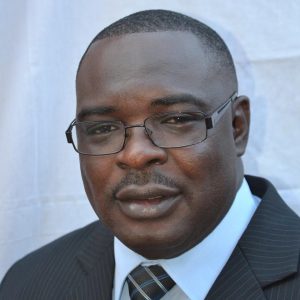
At the end of Dwight E. Eisenhower presidency in America, he warned of the military industrial complex as certain businesses were interested in the war machinery of the United States for the financial benefits they would gain from perpetual state of war. In the 1990, when President Clinton declared the end of “welfare as we know it,” it created an opportunity for the prison industrial complex where businesses in the penal industry saw lucrative investment opportunities in prison system. The new opportunities led to more calls for ‘law and order,’ or ‘tough on crime’ laws which led to increases in the U.S. prison population to nearly three million people. Under the criminal justice system cross the U.S., more than twelve million people are engaged in one way or the other as detainees in half-way jails or jails, parolees, under probation, or prisoners.
The legal fraternity in The Gambia, which many people saw as have abdicated it responsibilities to the larger society, and many of whose members have colluded with Jammeh during the years of oppressive rule, have now become the major winners in the enterprise of cleaning the mess they helped perpetrate. In gearing toward positions, many among them have muzzled themselves, as they did during the reign of terror under Jammeh, rather than speak publicly where the Barrow Administration violates the constitution or disregards the due process of the law. Instead, so many among them are just simply positioning themselves to be allowed in through the revolving doors.
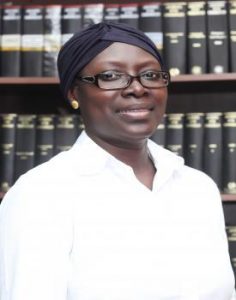
In The Gambian context, the Commission Industrial Complex is a booming business as members of the legal fraternity are peddling influence and rewarding one another costing poor taxpayers hundreds of millions. The true cost of the commissions that were established and operational thus far was revealed by the Minister of Finance and Economic Affairs, Mambury Njie, who while defending the Supplementary Appropriations Act 2018 said they registered “a budget shortfall of D236 million” (two hundred and thirty-six million dalasis). The commissions may not have been designed to solve any real problems or finds any solutions for the country as the Faraba Banta inquiry ended with the dramatic announcement that “President Adama Barrow has ordered for the immediate withdrawal of murder charges against five police officers who were incriminated in the death of three people in Faraba Banta.” The commission under the Barrow Administration are the ideas of the ultimate institutionalist of the UN system—AG Tambadou—as solutions looking for problems in The Gambia. They are the UN model for solving African problems through expediencies of truth and reconciliations commissions that provide no real justice for victims, but waste the resources needed for improving the conditions of the poor of our societies.
As The Gambia is evolving during this transition, the insatiable penchant for commissions has surely not solved any tangible problems but have substituted the tyranny of His Excellency Sheikh Professor Dr. Alhagie Babili Mansa Yahya A.J.J. Jammeh Nasirudeen for that of lawyers. Undoubtedly, both tyrannies are costly. Jammeh’s tyranny was a tragedy while that of the lawyers’ is a farce. The latter is indictably self-incriminating given that it’s architects ensembled themselves to institute a correction of the incontinent abuses of the former.

